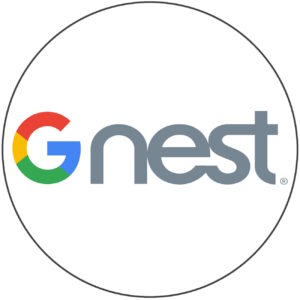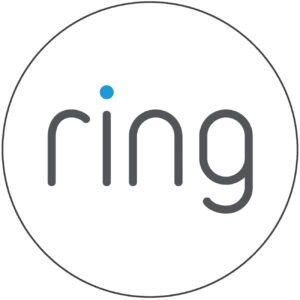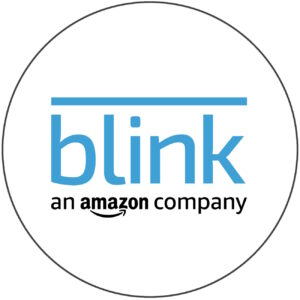Security Cameras
Video Security For Home Or Business In The Palm of Your Hand
Add Smart Cameras To Your Home Or Business Today
Increasing Popularity: In recent years, the adoption of cloud-based IP security cameras such as Ring, Google/Nest, Arlo, ReoLink, Eufy, & WYZE to name just a few has skyrocketed, changing the way we implement security in homes and businesses. These innovative devices offer a wide range of choices, making them preferred for both residential and commercial applications.
Why So Special: Cloud-based IP cameras allow users to remotely access live feeds and recordings from any location with an internet connection. This level of accessibility provides unparalleled convenience and peace of mind, enabling users to keep a watchful eye on their property even when they’re many miles away.
The Benefits Of Installing IP Security Cameras
1. Cloud-Based IP Security Cameras
Remote Access and Monitoring: Cloud-based IP cameras allow users to remotely access live feeds and recordings from any location with an internet connection. This level of accessibility provides unparalleled convenience and peace of mind, enabling users to keep a watchful eye on their property even when they’re miles away.
Scalability: One of the key advantages of cloud-based security systems is their scalability. Whether you need to monitor a single room or an entire campus, these cameras can easily adapt to your evolving needs without requiring significant hardware upgrades or infrastructure investments.
Enhanced Security Features: Cloud-based security cameras come equipped with a host of advanced security features, including motion detection, facial recognition, and tamper detection. These capabilities not only help deter potential intruders but also provide valuable insights for proactive threat mitigation.
2. Cost-Effectiveness
Reduced Infrastructure Costs: Unlike traditional CCTV, DVR & NVR systems that rely on dedicated recording equipment, cloud-based IP cameras leverage remote servers for storage and processing, eliminating the need for costly onsite hardware.
Maintenance Savings: Cloud-based security systems require minimal maintenance compared to their analog counterparts, reducing the overall cost of ownership and ensuring uninterrupted operation.
3. Integration with Smart Home Technology
Seamless Connectivity: Cloud-based IP cameras seamlessly integrate with smart home ecosystems, allowing users to control and monitor their security devices through a centralized platform.
Automation Features: From scheduling recording sessions to setting up custom alerts, cloud-based security systems offer a wide range of automation features that enhance convenience and efficiency.
4. Advanced Analytics and Insights
AI-Powered Surveillance: By leveraging artificial intelligence and machine learning algorithms, cloud-based IP cameras can analyze video footage in real-time, detecting anomalies and identifying potential security threats with remarkable accuracy.
Data-driven Decision Making: The insights generated by cloud-based security systems enable users to make informed decisions regarding security protocols, resource allocation, and risk mitigation strategies.
5. Flexibility and Mobility
Access Anywhere, Anytime: With cloud-based IP cameras, users can access live feeds and recordings from any internet-enabled device, including smartphones, tablets, and laptops.
Compatibility with Mobile Devices: The mobile-friendly interface of cloud-based surveillance platforms ensures seamless access and control, empowering users to stay connected on the go.
6. Reliability and Redundancy
Cloud Storage Benefits: Cloud-based surveillance systems offer reliable storage solutions with built-in redundancy, ensuring that critical footage is securely backed up and accessible whenever needed.
Backup and Disaster Recovery: In the event of a hardware failure or security breach, cloud-based IP cameras provide robust backup and disaster recovery mechanisms, minimizing downtime and data loss.
7. Security Concerns Addressed
Encryption and Data Protection: Cloud-based security platforms employ state-of-the-art encryption protocols to safeguard sensitive data and prevent unauthorized access.
Secure Authentication Methods: From two-factor authentication to biometric login options, cloud-based IP cameras offer multiple layers of security to protect against unauthorized access and cyber threats.
Our Security Camera Partners









Frequently Asked Questions | Security Cameras
ANSWER: Security cameras in the modern era are usually audio/video devices that monitor and record activity in a specific area to enhance security and surveillance. They work by capturing video footage either continuously or by triggered motion detection. The footage is then stored locally or remotely for later viewing and analyses.
ANSWER: There are various types cameras including but not limited to: Dome Cameras, Bullet Cameras, PTZ (pan-tilt-zoom) Cameras, and Wireless Cameras. Each of these have specific features and applications.
ANSWER: The security camera and equipment industry has exploded over the recent years to the point that many of us feel that there are video cameras everywhere. This has brought many equipment makers into the manufacturing market. Among the industry leaders are companies such as Ring, Google/Nest, SimpliSafe, Eufy, Arlo, TP-Link, WYZE, Reolink, Ubiquiti, & Blink to mention just a few.
ANSWER: Key features to consider include resolution, field of view, night vision capability, motion detection, remote access, and weather resistance. Beyond these basic features, modern cameras are being equipped with more A.I. driven features such as Smart Motion Detection & Alerts, Behavior Analysis for Unusual Activity, Seamless Smart Home Integration and many more.
.
ANSWER: Some security cameras have built-in microphones for audio recording and are also capable of 2-way conversation. But it’s essential to check local laws and regulations regarding audio recording. These laws may differ from State to State.
.
ANSWER: Many security cameras come with infrared LEDs for night vision, allowing them to capture clear footage in low light or complete darkness. Night vision technology is evolving and beyond it’s black and white beginnings currently allows for vastly improved clarity and color.
.
ANSWER: Installation methods will vary depending on the type of camera. It typically involves mounting the camera securely and connecting it to a power source and recording device or network. This may require some level of DIY expertise. If it’s something you would like assistance with, contact us for your security camera installation. Whether it’s a battery or hard-wired power source, we can help. Start by clicking the button below to make an installation appointment, or call us.
.
ANSWER: Like any connected device, security cameras can be vulnerable to hacking if not properly secured. It’s crucial to use strong passwords, keep firmware updated, and use secure networks.
.
.
ANSWER: Yes, there are cameras designed specifically for indoor or outdoor use. Outdoor cameras are typically weatherproof and built to withstand harsh conditions.
ANSWER: While some security cameras can operate independently, many require an internet connection for remote viewing, notifications, and cloud storage.
.
ANSWER: The amount of storage needed depends on factors like camera resolution, frame rate, and recording duration. Options include local storage (e.g., SD cards) or cloud storage subscriptions.
.
ANSWER: Smart technology is really turning up the heat in terms of benefits to the consumer. There are a many advantages of buying a smart security camera. One of which is that you can keep an eye on your property at all times, whether you’re at home or far away. Secondly, if something does happen, you can quickly and easily review the video footage to see exactly what happened. This can help you to help law enforcement track down and catch the perpetrators involved and ensure that they are brought to justice. Finally, smart security cameras often come with features like motion detection, facial recognition and night vision capability, which can help you more effectively monitor your property.
ANSWER: Yes, many security cameras are compatible with smart home platforms like Amazon Alexa, Google Assistant, and Apple HomeKit, allowing for seamless integration and control.
ANSWER: At this point we are not aware a security camera on the retail market that requires professional monitoring. Monitoring services are optional for some security camera systems and may provide additional security and peace of mind, especially for larger properties or businesses.
ANSWER: Yes, security camera footage can be used as evidence in legal proceedings, but it’s crucial to ensure that the footage is properly handled and authenticated.
ANSWER: Yes, security cameras can raise privacy concerns, especially if they capture footage of individuals without their consent. Generally speaking, US citizens enjoy the constitutional protection of the 1st Amendment to create video footage. However, it is essential to consider privacy laws and respect the privacy rights of others.
ANSWER: Yes, many security cameras offer remote access via smartphone apps or web portals, allowing users to view live footage and recordings from anywhere with an internet connection.
ANSWER: While security cameras are generally low-maintenance, periodic checks for dirt, debris, or physical damage are recommended. Also, keeping firmware updated helps address security vulnerabilities.
ANSWER: Mounting cameras out of reach and using tamper-resistant hardware can help prevent tampering. Additionally, some cameras have tamper detection features that trigger alerts if tampering is detected.
ANSWER: Outdoor security cameras are typically weatherproof and designed to withstand various weather conditions, including rain, snow, and extreme temperatures. The same can’t necessarily be said for security cameras that are designed for indoor use. Carefully review the device makers literature to confirm before purchasing.
ANSWER: The lifespan of a security camera can vary depending on factors like build quality, usage, and environmental conditions. Generally, well-maintained cameras can last anywhere from 5 to 10 years or more.
ANSWER: Installation Guy, LLC is a company that offer installation services for smart home gadgets, and IT handyman tasks. So, generally our customers purchase retail devices that we install. However, in some cases we will supply the device to be installed because some customers are unsure of what exactly is needed for a successful installation. In such cases, the cost of materials is simply added to the invoice and settled upon completion of the installation.
ANSWER: Awesome choice. The first thing you’ll want to do is select the Smart Security Camera device od your choice and purchase it. If you feel you need help through that process, feel free to reach out to our office at the contact info below or Click Here. Next you can setup an appointment with one of our technicians by Clicking Here, and we will handle the rest for you.